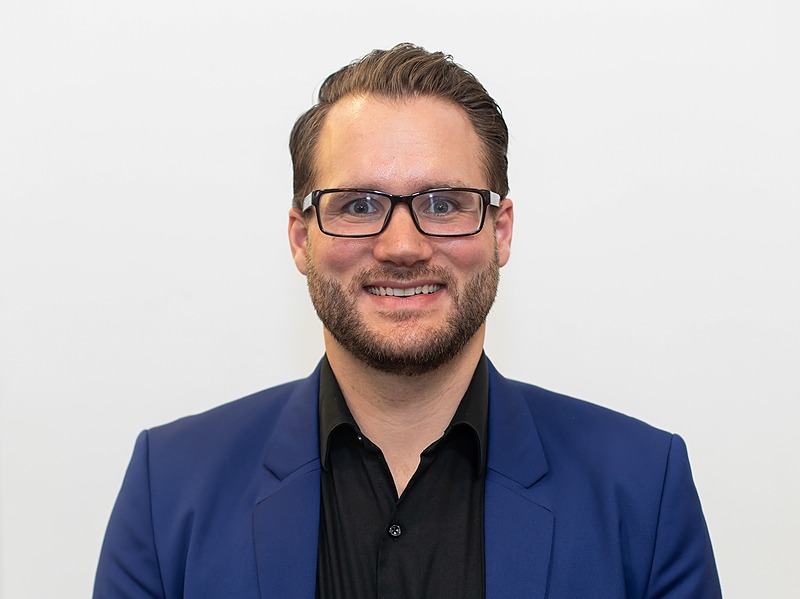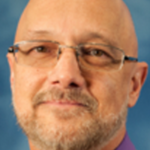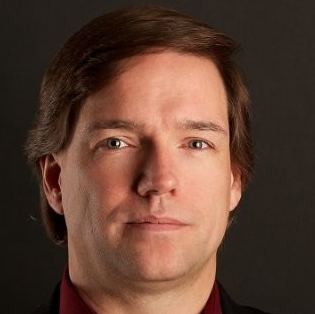

Smallsat manufactures and operators often look to established (and larger) industry participants to support their programs, whether as investors, advisors, or strategic partners. Similarly, many traditional prime contractors see Smallsats as a significant part of the future of the industry, both for commercial and government programs, and see investments and strategic collaborations with Smallsat players as the way to remain relevant. Our panel will discuss what these prime contractors need to do and have done to attract the best of the Smallsat players.
Along with what prime contractors have to do a particular focus will be on what structuring challenges new entrants should expect when teaming with an existing, larger, industry partner.
 Dara Panahy
Dara Panahy
As leader of the firm’s Transportation and Space Group in Washington, D.C., Dara’s practice involves representation of satellite operators, aerospace manufacturers, launch services providers, communications companies, banks, private equity firms and hedge funds in debt and equity offerings, project, structured and vendor financings, mergers & acquisitions, financial restructurings and in negotiating commercial contracts. He also advises on regulatory, sanctions, anti-corruption, national security and export control matters.
PRIMARY FOCUS & EXPERIENCE
Mr. Panahy’s practice focuses on representing clients involved in the aerospace and communications industries. His experience includes representing satellite operators, aerospace manufacturers, launch services providers, communications companies, banks, private equity firms and hedge funds in numerous financings involving public offerings, high yield debt, investment-grade bonds, project and vendor financings, mergers & acquisitions, financial restructuring and reorganizations and in negotiating project contracts. He also counsels clients on domestic and international regulatory and trade matters, including licensing of communications systems, economic sanctions, regulation of foreign direct investment, anti-bribery and corrupt practices, national security and export control laws and regulations and risk management.
 Michael Creech
Michael Creech
 Erik Daehler
Erik Daehler
Erik Daehler is the Senior Director of Protected Communications Satellite Missions for the Lockheed Martin Corporation. In this capacity, he is responsible for the development, deployment and operations of strategic and tactical communications satellites for the United States Government, allies, coalition partners and commercial customers. He brings 20 years of aerospace and defense experience to the mission.
Mr. Daehler is responsible for the development of next-generation satellite communications (satcom) product offerings, technology solutions, satellite design and system architectures. In this role, Mr. Daehler uses his experience in commercial satcom to innovate and affordably develop solutions for government missions. He directs the team delivering the most-advanced programs including AEHF, MUOS, PTS, ESS, COOLR as well as future programs in Australia, the United Kingdom and across the globe for Lockheed Martin’s government and international customers.
Prior to joining Lockheed Martin, Mr. Daehler was the Director of Product Innovation for Boeing, where he led development of new satellite platforms for Boeing’s Advanced Network and Space Systems, including the first of a kind 702SP all-electric, dual-stacked satellite and the 502 remote sensing satellites.
Mr. Daehler has a background in optical physics with applications in communication and space remote sensing. This mission experience shaped the strategy for new technology development. Mr. Daehler led research and development for Boeing’s unmanned satellite systems, worked as a Chief System Architect and Systems Engineering Manager on large-scale satellite and network systems for commercial and government customers.
Mr. Daehler joined Lockheed Martin at NASA’s John C. Stennis Space Center in 2000 where he performed calibrations of space and aircraft-based earth observation systems. In 2002, he transitioned to Boeing to develop next-generation space systems including the X-37B reusable space plane. In 2016, Mr. Daehler returned to Lockheed Martin to grow the commercial communications and remote sensing business.
Mr. Daehler was educated in Europe at the Technical University of Delft in the Netherlands where he received his Master’s degree in Space Systems Engineering. He also received a Bachelor of Arts in Physics from The Colorado College in 1998.
 Debra Facktor
Debra Facktor
Debra Facktor is the Head of U.S. Space Systems for AIRBUS U.S. Space & Defense, Inc., reporting to the Chairman and CEO of Airbus U.S. She joined the company in March 2020 and is responsible for managing the two businesses within U.S. Space Systems: National Security Space and Space Exploration. She also represents Airbus on the board of Airbus OneWeb Satellites, a joint venture between Airbus and OneWeb operating a high-volume, high-speed satellite production facility in Florida, leveraging Airbus’ long standing heritage in satellite manufacturing.
Prior to joining Airbus U.S., Debra was Vice President and General Manager of Strategic Operations for Ball Aerospace, leading the company’s Washington DC operations, strategic development, and marketing and communications. Her extensive business experience includes serving as President and Owner of AirLaunch LLC, a small business that won funding from the Defense Advanced Research Projects Agency (DARPA) and as Vice President of Business Development and Strategic Planning for Kistler Aerospace Corporation, a company that was developing a privately-funded reusable launch vehicle for the telecommunications satellite and International Space Station commercial resupply markets. Earlier in her career, Debra was Chief of Moscow Operations for ANSER’s Center for International Aerospace Cooperation.
Debra is actively engaged as a board member, advisor and mentor in the aerospace community, with organizations such as the Intelligence and National Security Association (INSA), American Institute of Aeronautics and Astronautics (AIAA), Future Space Leaders Foundation, Brooke Owens Fellowship Program, Women in Aerospace and the International Women’s Forum. She serves on the Industrial Advisory Board of the University of Michigan aerospace engineering department and as an adjunct faculty member of the Johns Hopkins University systems engineering department. She is a fellow of AIAA and the American Astronautical Society (AAS) and an academician of the International Academy of Astronautics (IAA).
Debra received her bachelor’s and master’s degrees in aerospace engineering from the University of Michigan, and is an alumna of the International Space University summer session program in Strasbourg, France.
 Professor Andrew Kwas
Professor Andrew Kwas
Andy has 41 years with NGC/TRW working in advanced space programs specializing in space, advanced manufacturing, astrophysics projects and in-space manufacturing. As a NG Fellow, he supports NGC’s key space customers including NASA, AFRL, NRO, DARPA, Army/SMDC, Space RCO, USMC, and the Navy. He is considered one of the prominent additive manufacturing (AM) experts in the country and has produced numerous papers in AM, as well as advanced satellite technology, in-space manufacturing using advanced additive manufacturing techniques, unique logistics solutions, and miniaturization of spacecraft components. Andy brings his innovative approach to problems and has won several awards in innovation. His leadership of applying advanced space concepts to a transitional operational phase has been critical to NGC’s success.
Andy is an appointed Research Scholar at the University of New Mexico and is on their staff in the Electrical and Computing Engineering Department, supporting satellite and space research. He is on the Technical Advisory Boards for Virginia Tech, U of Michigan, Cornell, and U of New Mexico. Andy Kwas graduated from the University of Michigan in 1978 with two Bachelor degrees in Aerospace Engineering and Applied Mechanics, and received a Masters degree in 1980 from the University of Missouri Science and Technology in Astrophysics.
 Johanne Lecomte
Johanne Lecomte
Johanne Lecomte is Vice-President, Business Development and Sales for Thales Alenia Space (TAS), in Arlington, VA. Over the last 7 years, she has been responsible for increasing Space business in North America in the institutional and commercial markets, for the Telecom, Remote Sensing, Exploration, Planetary Sciences and Navigation domains. Additionally, over the past few years, Ms. Lecomte has also been leading TAS North America Government Strategy, making particular inroads in the DoD market in the USA and DND in Canada.
She has more than 25 years of experience in the telecommunication and satellite industries. She was Vice-President of Sales and Marketing in North America for 10 years at Airbus Defense and Space and Vice-President, Sales, Marketing and Communications at International Launch Services (ILS). She also occupied various leadership positions at Telesat, Amos by Spacecom, Dynegy, Teleglobe International and Bell Canada. Throughout her career, she conducted various in-country Business Development projects in Africa, Asia, Latin America and the Middle East.
Johanne holds a bachelor’s degree in Electrical Engineering (BSEE) from Ecole Polytechnique and a master’s degree in Electrical Engineering/International Program Management (MBA/MSEE), from Sherbrooke University in Canada.
 Jim McClelland
Jim McClelland
Jim McClelland, in mid-2020, rejoined Maxar as the Vice President of Mission Architecture where he leads the company’s efforts to structure and develop compelling solutions in support of commercial, civil, and national security customers.
Prior to joining Maxar, Jim spent 2 years as the Airbus US Chief Technology Innovation Officer and 1 year as the Chief Technical Officer of OneWeb Satellites where he helped drive forward the OneWeb and Arrow satellite designs in support of the OneWeb and other US commercial and government customers.
With 35 years of experience in the aerospace industry at small and start-up companies such as Spectrum Astro, DigitalGlobe, Skybox Imaging, and Millennium Space Systems, Jim brings in-depth expertise in program and technical management as well as systems engineering and is a strong advocate for driving transformation in the space industry.
Jim holds a Bachelors degree in aerospace engineering from the University of Illinois (Urbana), a Masters degree in aerospace engineering from Stanford University, and an MBA from the University of Colorado (Leeds School of Business).